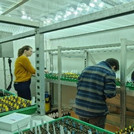Evolutionary Systems Biology: Priority Research Area - University of Potsdam
The Priority Research Area “Evolutionary Systems Biology” (UFS) is a prominent interdisciplinary research initiative at the University of Potsdam, dedicated to advancing our understanding of the complex dynamics of biological evolution and systems biology. Central to this endeavor is the exploration of the interplay between evolutionary processes and the intricate systems that govern biological organisms. By synergizing expertise from diverse scientific fields such as genetics, computational biology, ecology, and bioinformatics, this initiative fosters a comprehensive understanding of the intricate interactions shaping the evolution of life to unravel the underlying principles that drive adaptation, speciation, and the emergence of novel traits in various organisms.
Official websites: UFS Evolutionary Systems Biology
Mission
The primary goals of the Evolutionary Systems Biology priority research area at the University of Potsdam encompass three main aspects:
1. To advance globally competitive research in the realm of Evolutionary Systems Biology at the University's Institute of Biochemistry and Biology.
2. To draw and cultivate exceptionally talented early-career researchers and group leaders within this emerging scientific domain.
3. To solidify the University of Potsdam's position as a forefront institution in the field of Evolutionary Systems Biology.
Our working group is participating in the UFS with project B04: Genomic and functional underpinning of reaction norms across environmental gradients, in which we study the phenotypic plasticity of various populations of the model plant Arabidopsis thaliana under environmental stress and to find the genetic basis of the dissimilarities and distinct responses shown in their reaction norms.
Opportunities
You are welcome to inquire about possibilities for PhD or post-doctoral positions. Please check vacant positions or contact Prof. A. Linstädter (linstaedter@uni-potsdam.de) directly. Should you seek opportunities for a Bachelor or Master thesis, please check our institutional list of topic for theses.
Genomic and functional underpinning of reaction norms across environmental gradients
Aims | Project B04 investigates the variation in the plasticity of the leaf functional traits, underlying the LES (Leaf economics spectrum), across A. thaliana accessions in response to changes in nitrogen availability and ambient temperature. In particular, we view how are the component LES traits and the resulting composite trait modified in response to nutrient resources, and what is the genetic and molecular basis of variation in plasticity of LES traits to these environmental cues. We also evaluate if the variation in plasticity of LES traits among accessions adaptive is associated with environmental parameters at accessions’ sites of origin. |
Approach | Our methodological approach relies a multilevel phenotyping experiment to quantify the plasticity of LES traits (and of the resulting composite trait) to variation in nitrogen. A suite of LES traits (including leaf area, SLA, and dry matter content, nitrogen content) will be recorded for ten individuals per accession and treatment. To test for a possible role of LES plasticity in local adaptation, we will search for associations between reaction-norm descriptors and climatic parameters at the accessions’ sites of origin. |
Expected Outcome | The project directly addresses the genetic and molecular basis of variation in plasticity of LES traits in response to nitrogen, the existence of genetic correlations and the adaptive value and evolution of the studied plasticity. The project has the potential to reveal novel factors involved in shaping leaf morphology and function in response to environmental cues. This is expected to generate testable hypotheses about the consequences of plasticity in leaf morphology. |
Persons Involved
| PIs PhD student Hiba El Hjajbi
Master student Vera Nauke |
Cooperation partners | Leibniz Institute of Genetics and Crop Plant Research (IPK), Gatersleben Max Planck Institute of Molecular Plant Physiology (MPI-MP), Potsdam Leibniz Institute of Vegetable and Ornamental Crops (IGZ), Großbeeren Humboldt Universität, Berlin |
Outreach | Halbritter, A.H., De Boeck, H.J., Eycott, A.E., Robinson, D., Vicca, S., Berauer, B., Tai Christiansen, C., Estiarte, M., Grünzweig, J.M., Gya, R., Hansen, K., Jentsch, A., Lee, H., Lindner, S., Marshall, J., Peñuelas, J., Kappel Schmidt, I., Reinsch, S., Wilfahrt, P., ClimMani Working Group (with Linstädter, A.) & Vandvik, V. (2020). The handbook for standardized field and laboratory measurements in terrestrial climate change experiments and observational studies (ClimEx). Methods in Ecology & Evolution 11, 22-37. Takou, M., Wieters, B., Kopriva, S., Coupland, G., Linstädter, A., de Meaux, J. (2019). Linking genes with ecological strategies in Arabidopsis thaliana. Journal of Experimental Botany 4, 1141-1151. Linstädter, A., Schellberg, J., Brüser, K., Oomen, R.J., Du Preez, C.C., Ruppert, J.C. and Ewert, N.F. (2014). Are there consistent grazing indicators in drylands? Testing plant functional types of various complexity in South Africa’s grassland and savanna biomes. PLoS one 9(8):e104672. Moreno García, C.A., Schellberg, J., Ewert, F., Brüser, K., Canales-Prati, P., Linstädter, A., Oomen, R.J., Ruppert, J.C. and Perelman, S.B. (2014). Response of community-aggregated plant functional traits along grazing gradients: Insights from African semi-arid grasslands. Applied Vegetation Science 17:470-481. Zimmermann, J., Higgins, S.I., Grimm, V., Hoffmann, J., Linstädter, A. (2015). Local density effects on individual production are dynamic: Insights from natural stands of a perennial savanna grass. Oecologia 178:1125-1135. Tsuchimatsu, T., Kakui, H., Yamazaki, M., Marona, C., Tsutsui, H., Hedhly, A., Meng, D., Sato, Y., Städler, T., Grossniklaus, U., Kanaoka, M.M., Lenhard, M., Nordborg, M., Shimizu, K.K. (2020). Adaptive reduction of male gamete number in the selfing plant Arabidopsis thaliana. Nature Communications 11: 2885. Anastasiou, E., Kenz, S., Gerstung, M., MacLean, D., Timmer, J., Fleck, C., and Lenhard, M. (2007). Control of plant organ size by KLUH/CYP78A5-dependent intercellular signaling. Developmental Cell, 13:843-56. |




